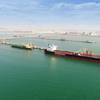Ice-Free Arctic?
At the current rate of carbon emissions of about 35 to 40 gigatons a year, scientists are estimating that the Arctic could become ice-free within the next 20 years, Suptnik reported quoting National Snow and Ice Data Center (NSIDC) in Boulder.
Julienne Stroeve, a climate scientist at NSIDC in Boulder, Colorado, warned of rising oceans, and foul weather from Polar melt, the report said.
The changes are the largest in the summertime, but they are actually happening during all months of the year. "I think the key things we really need to understand is, first, the natural climate variability and, second, changes caused by increased human activity," she quoted as saying.
She warned if the Arctic ice melts away this would result in a seven-meter increase in the sea levels worldwide.
Meanwhile, a report by TASS revealed hat the scientists of the Murmansk Marine Biology Institute finished a big Arctic expedition, during which they made a few discoveries about the marine flora and fauna.
The Institute’s Deputy Director General Pavel Makarevich told TASS the scientists now can explain why the water area, developing from ice thawing, remains uninhabited.
The scientists fixed the fact that the ice thawing - due to the warming - does not affect the ocean’s productivity, that is growth of flora and fauna, he said.












